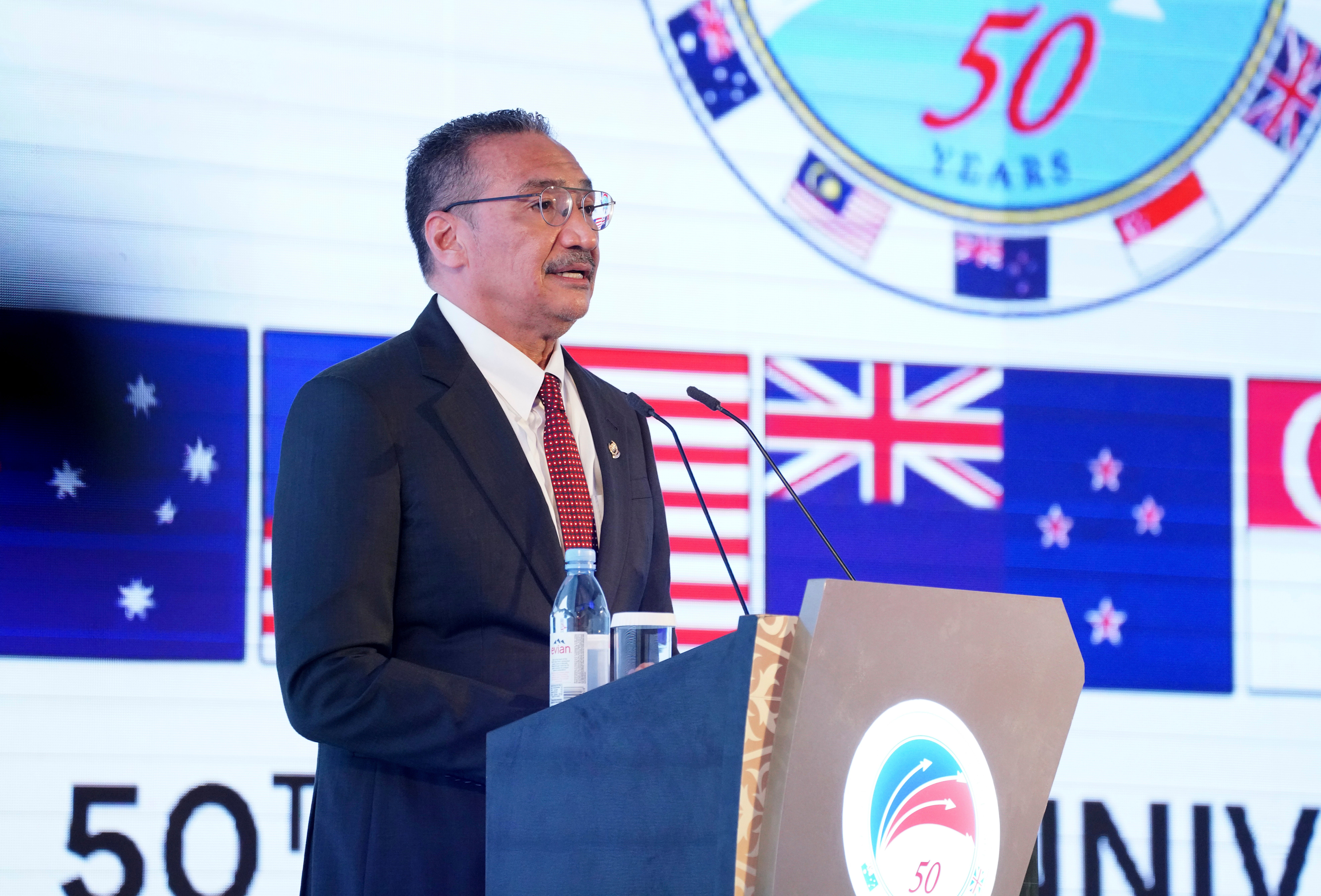Australia, UK defend AUKUS pact, say fears overhyped
Australia and Britain are defending their nuclear submarine deal with the U.S. amid concerns it could escalate tensions in the region and spark an arms race

Your support helps us to tell the story
From reproductive rights to climate change to Big Tech, The Independent is on the ground when the story is developing. Whether it's investigating the financials of Elon Musk's pro-Trump PAC or producing our latest documentary, 'The A Word', which shines a light on the American women fighting for reproductive rights, we know how important it is to parse out the facts from the messaging.
At such a critical moment in US history, we need reporters on the ground. Your donation allows us to keep sending journalists to speak to both sides of the story.
The Independent is trusted by Americans across the entire political spectrum. And unlike many other quality news outlets, we choose not to lock Americans out of our reporting and analysis with paywalls. We believe quality journalism should be available to everyone, paid for by those who can afford it.
Your support makes all the difference.Australia and Britain on Thursday defended their nuclear submarine deal with the U.S. amid concerns it could escalate tensions in the region and spark an arms race.
U.K. Minister for Armed Forces James Heappey said there “has been a lot of overhyping” of the pact known as AUKUS He said the U.K. and the U.S. have been sharing such technologies for decades and that Australia’s decision to join was merely to develop its own submarine capability.
The pact will provide Australia with nuclear reactors to power its submarines but the subs will not be nuclear-armed. It drew mixed reactions in the region, with Malaysia and Indonesia expressing concern it could escalate tensions in hotspots such as the South China Sea. China, which claims most of the disputed sea, slammed the pact and warned it would threaten regional stability.
Other nations such as the Philippines and Singapore suggested AUKUS could contribute to regional peace by helping to counterbalance China's growing influence in the region.
“It doesn’t in any way reflect reduction in our friendships with colleagues and allies. It doesn’t in anyway represent a challenge in your part of the world,” Heappey said in an online news conference after meeting with his counterparts in the Five Powers Defense Arrangements.
The FPDA, which involves Commonwealth members Malaysia, Singapore, Australia, New Zealand and the U.K., is a non-binding treaty formed half a century ago. The countries are to consult each other in the event of armed threats or attacks on former British colonies Malaysia and Singapore.
Australian Defense Minister Peter Dutton agreed that AUKUS is “not a defense alliance or a security pact" and doesn't represent a shift in his country's defense strategy. He said the pact is aimed at improving Australia's defense capability and will complement its partnerships in the region, including FPDA.
Dutton said Australia has no intention of interfering in the operations of other nations, and will continue to maintain close ties to ensure the region remains secure and prosperous.
Malaysian Defense Minister Hishammuddin Hussein didn't comment on the AUKUS pact. Malaysian officials earlier said they were worried that AUKUS could provoke other powers to act more aggressively in the region, especially in the South China Sea. Malaysia has said it doesn't want to be dragged into the U.S.-China rivalry.
While Malaysia and Singapore don't face any particular threats, Hishammuddin said the FPDA remains relevant and will continue to focus on issues such as counterterrorism. transnational crime and regional maritime tensions. The five nations earlier this week wrapped up an annual defense exercise involving ships, aircraft and 2,600 personnel to mark their 50th anniversary.